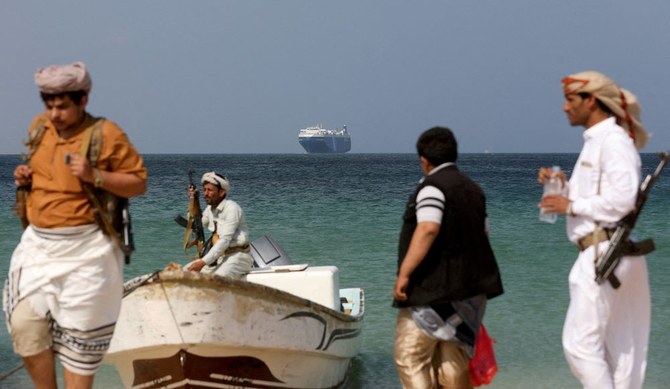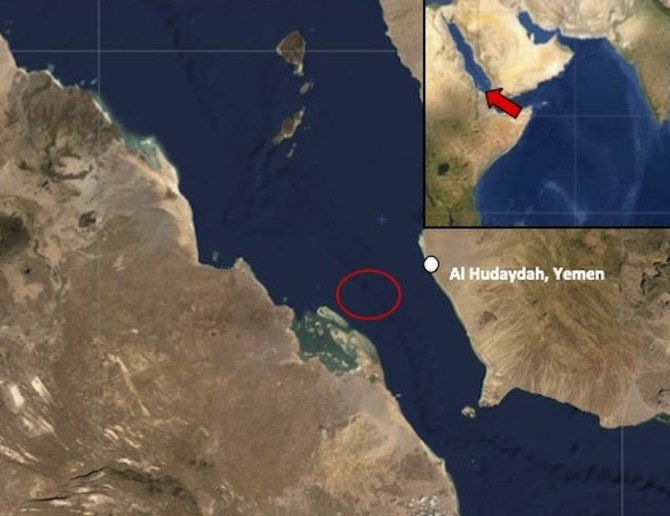AL-MUKALLA: A commercial ship transiting the Red Sea was damaged on Wednesday in an attack by another vessel and a projectile thought to have been launched by the Houthi militia group, two UK maritime agencies said.
The UK Maritime Trade Operations said in an initial report that it received a message from the master of the cargo ship that it had sustained damage to its stern after being attacked by a small vessel about 66 nautical miles southwest of the port city of Hodeidah.
The smaller craft was “white in color and 5-7 meters in length. Authorities are investigating. Vessels are advised to transit with caution and report any suspicious activity,” it said.
In updates, the UKMTO said the ship was also struck by an “unknown airborne projectile,” was taking on water and not under the control of the crew.
A second maritime security service, Ambrey, identified the cargo ship as the Greek-owned Tutor and said it had suffered damage to its engine room.
While the Houthis did not immediately claim responsibility for the attack, Ambrey said the boat seemed to have been launched by the militia group from Yemen.
Over the past eight months, the Houthis have launched hundreds of ballistic missiles, drones and remote-controlled, explosive-laden boats at commercial and naval ships in international waters off Yemen and in the Indian Ocean, claiming their actions were intended to force Israel to end its war in Gaza.
But critics have said the group is taking advantage of the widespread condemnation of the killing of civilians in Gaza to shore up popular support while simultaneously recruiting and mobilizing fighters to attack the Yemeni government.
Wednesday’s attack came after the US Central Command said its forces had destroyed two anti-ship cruise missile launchers in a Houthi-controlled area of Yemen in the previous 24 hours.
US and UK forces conducted three airstrikes on Tuesday in Al-Salif district of Hodeidah province, according to Houthi media.
Meanwhile, the Houthis are coming under mounting pressure from around the world to free the scores of Yemeni employees of the UN and other foreign organizations who were abducted from their homes in Sanaa.
World Health Organization chief Tedros Adhanom Ghebreyesus said on Wednesday that a WHO employee was among those being held.
“We are working closely with our UN counterparts to ensure their safety. We urge an immediate and unconditional release. Humanitarian workers must never be a target,” he said.
Yemen’s Minister of Human Rights Ahmed Arman told Arab News this week that Dr. Abdul Nasser Al-Rabai, an immunization officer for the WHO’s Yemen office, was abducted in a raid on his home.
Meanwhile, the son of Judge Abdul Wahab Qatran said on Facebook on Wednesday that his father had been released after being held by the Houthis for five months.
Mohammed Abdul Wahab Qatran posted a photograph of himself with his father and siblings but said the Houthis were still holding his father’s phones and other items taken during a raid on his home.
“My free and heroic father was freed this afternoon but he is unable to access all of his accounts since his phones and accounts are still with the intelligence services,” he said.
Qatran Sr. was abducted in January and charged with denigrating a Houthi leader and publishing false news.
The judge was known for criticizing the Houthis for human rights violations and failing to pay public workers. Shortly before his abduction he voiced sympathy for a journalist who was attacked and beaten by the militia in Sanaa.





























